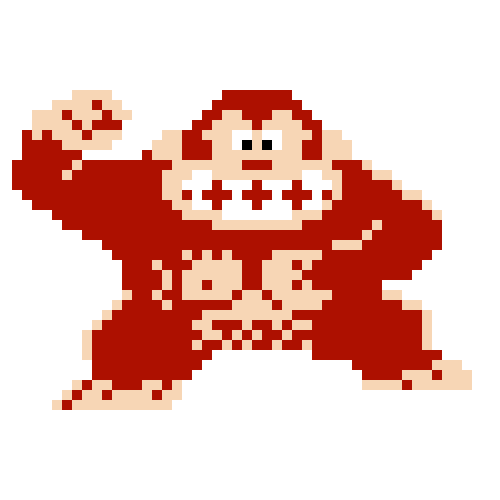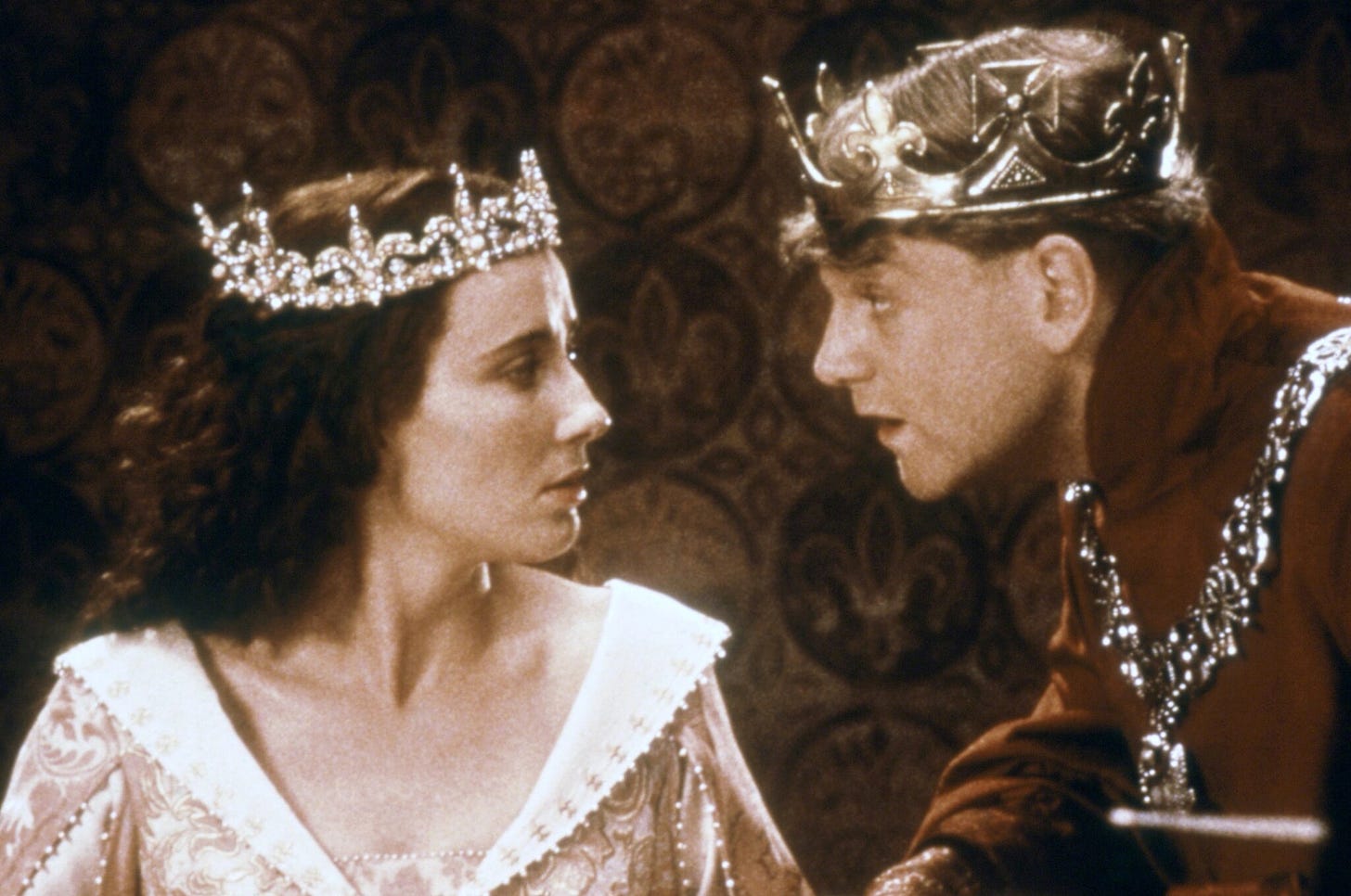Video Games That Are Beautiful and Therapeutic and Fun and Sometimes You're a Doggie
With Ms. Myers, Mr. Branagh, Mr. Kong, Ms. Rosen, and more
Oh hello. I didn’t see you come in. Welcome to my darn. Here, have a luxurious robe and join me by the furor. Thanks for reading the newsletter. I mean, thanks for reading at all, it’s good for you, but especially the newsletter. Because it’s the best. Relax. Your home now. Shhhh.
Please remember that our show exists because of listener donations. If you’ve donated, THANK YOU. If not, it’s easy: go here, pick a level that works for you, then select DEPRESH MODE from the list of shows.
Yes but what are Donkey Kong’s issues?
This week’s podcast is really good and kind of fascinating. And it was all the idea of our persistent producer, Gabe Mara. According to Gabe from a few months ago, there is a whole lot of great stuff going on in the indie video game world in regard to games that recognize mental health issues. These games, said Gabe, embrace a very honest and well-informed point of view about mental health and use it to make games that are poignant and engaging and deep. So we should talk about that, says Gabe. And he was right! And we did!
Here are some of the games mentioned on this week’s show:
Maddie Myers joins us. She’s the co-host of the Triple Click gaming podcast here on Max Fun and she’s dealt with depression herself for a very long time. She’s a saddie. Maddie the Saddie, as I don’t call her.
We’re also joined by Greg Lobanov, the creator of Chicory: A Colorful Tale, the game from that first video up there.
In this episode, I tried my best to not to “other” the art form of games. I’m not much of a video game player myself - they often stress me out, which hardly seems like a good direction - but I didn’t want to be too much of, you know, “Hey remember Asteroids?! Well get ready for a whole new thing!” Because for crying out loud it’s 2021 and we need to get over that. Games are here and they’re art and if you’re interested in cool things, you should know that.
It’s a bit like podcasting, really. We’re to a point where it’s not “I like video games” or “I hate podcasts” or “I like podcasts” or “I hate video games”. No one hates books or broadly “likes” movies. You like good things and don’t care for bad ones.
So listen to this podcast. That’s what I’m saying. Okay? Okay.
Ooh, as for Donkey Kong, clearly there are anger issues but if I had to guess, I think it’s about abandonment. Maybe as a young ape, he didn’t get support or love so he feels a need to kidnap a princess to form a crude facsimile of love. Maybe Mario reminds him of his dad and thus the barrel throwing.
Kenneth Branagh and trauma
I remember seeing Branagh’s Henry V when I was in college and being blown away. Epic film adaptation of an epic Shakespeare historical, which he both directed and starred in when he was 28 years old. All of those factors. It seemed so unfair for someone to be that brilliant. I typed “effortlessly” before the word “brilliant” there but deleted it because this new NYT Magazine article makes it clear that his whole life has been one of tremendous effort.
Dude deals with trauma. He was a kid when he had to flee Belfast with his family amid violence he witnessed. He has now made a film about those experiences, which sounds cathartic but also, holy shit, what an undertaking.
Which makes me wonder about what you were hoping to accomplish by making the movie. And I mean personally, not artistically. What were you trying to puzzle out? Perhaps to understand that situation. That rupture was the most significant event in my personal life. There was a sense that before that mob came up the street I knew who I was and that I was at peace. From that point onward, a whole series of identities and masks was constructed. What I wanted to do was peel some of those away. To do some self-remembering without indulgence, simply trying to open what had been covered up. Because there’s so much of who I am that was formed in that period up to 8 years old and before that riot occurred. But from that moment there was a guardedness, there was an inability to roll with things in the way that one had done before.
What you’re describing is the aftereffect of trauma. I hesitate to use the word in the sense that this little story exists in a place among groups of people who had many, many more traumatic experiences.
Props to the article’s author, David Marchese, on hanging in with naming the trauma in Branagh’s mind. He’s persistent even when it’s all too much for Branagh to face despite making the movie.
Calvin Ridley does a sensible thing
Ridley is a wide receiver for the Atlanta Falcons and is taking some time away from football to focus on his mental wellbeing.
A few remarkable things with this story:
This is already becoming routine. I follow football a bit and hadn’t heard of it. I go searching for news stories that touch on mental health to put in this newsletter and that’s where I came across it. It’s not as big a deal anymore.
The author of the article that I linked to, Matthew Chambers, says, “Throughout my career as a Falcons blogger, I’ve struggled a lot with my own mental health and probably not been quite the advocate for athlete mental health I could have been and should have been. I write that not to steal the spotlight, but to acknowledge that it is difficult to admit that you’re struggling and to afford the same grace to others that you desperately wish others would extend to you, and I know that Calvin Ridley is likely in a dark place to not only admit this but to take time away from the career he excels at.”
Built into the idea of a football player taking time off is the notion that when his mental wellbeing is better, he’ll return to a job where he knows huge strong men will try to tackle him.
I criticize NFL football all the time but I watch it.
Tweets from The ‘ween


I’m on a podcast with Alison Rosen, my new best friend
The name of the podcast, at least when I look at it, is Alison Rosen Is Your New Best Friend. So that proves it. And I’m the guest this week!
Alison turned the tables on me from when she was on Depresh Mode a few weeks ago.
Public radio personality, podcaster and author John Moe (Wits, Hilarious World of Depression, The Depresh Mode), joins the show to discuss his decision to talk openly about mental health, shifting from a public radio voice to his own voice and how it coincided with success, battling depression, Gen X's fear of being vaporized in an inevitable nuclear war, his childhood, his father's alcoholism, losing his brother to suicide in 2007, hating Don Henley, OCD, forgetting what he felt shame about more. We also took your questions, and did a round of Just Me Or Everyone and Hey Go F*ck Yourself.




